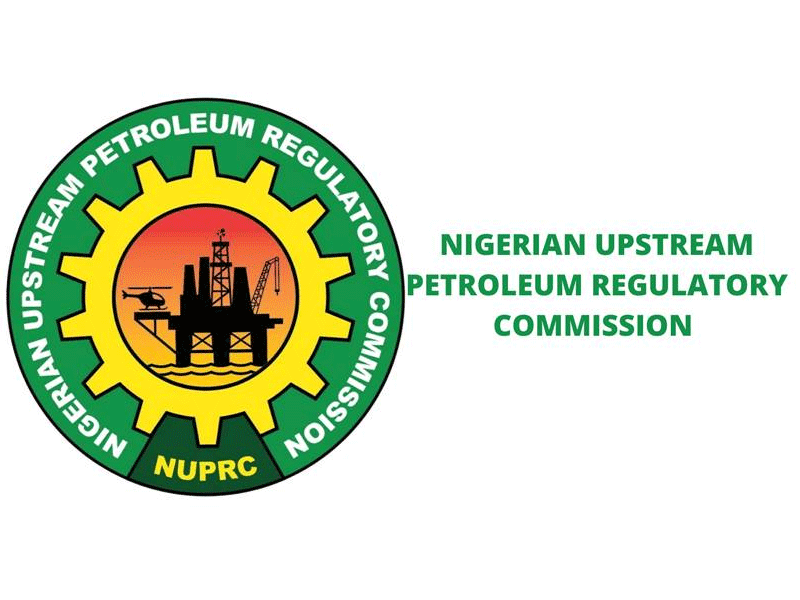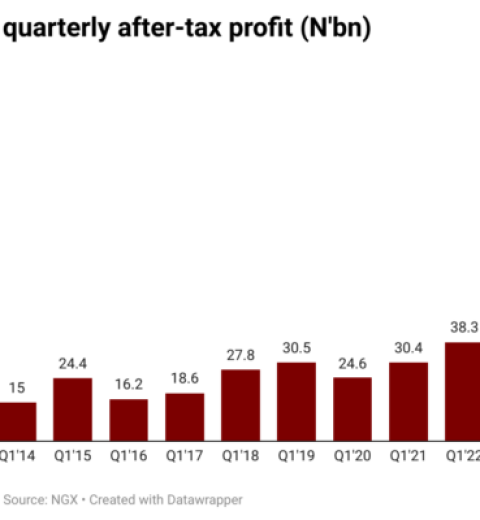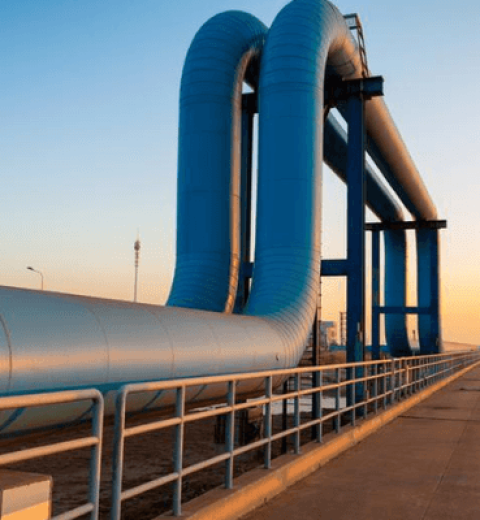
Since the enactment of the Petroleum Industry Act in 2021, there has been a notable transformation in Nigeria’s oil and gas sector. This legislation, passed by the National Assembly and signed into law by former President Muhammadu Buhari, stands as one of the boldest endeavors to revamp the petroleum industry in the country.
The Act establishes a comprehensive legal, governance, regulatory, and fiscal framework for Nigeria’s petroleum sector. Despite its significant contribution to revenue, the oil sector had trailed behind other industries in terms of its contribution to the Gross Domestic Product prior to the passage of this law. Hence, the PIA was crafted to spur Nigeria’s economic growth by attracting both local and international investors and fostering investment opportunities.
Additionally, the PIA instituted specific institutions to oversee the operations of Nigeria’s petroleum sector. Among these is the Nigerian Upstream Petroleum Regulatory Commission (NUPRC), a regulatory body tasked with ensuring adherence to petroleum laws, regulations, and guidelines in the upstream oil and gas industry.
Under the leadership of its Chief Executive, Engr Gbenga Komolafe, the NUPRC has actively assumed its statutory responsibilities. These include monitoring activities at drilling sites, production wells, platforms, flow stations, crude oil export terminals, and pipelines transporting crude oil and natural gas.
The shifting dynamics in the global energy landscape have compelled Nigeria, a nation heavily reliant on oil and gas exploitation for its economic sustenance, to reassess its strategy. This reassessment aims to secure a prosperous energy future while aligning with global climate objectives.
Hence, the provisions outlined in the Petroleum Industry Act of 2021 (PIA), encompassing legal, governance, fiscal, and regulatory frameworks, serve multiple objectives, foremost among them being the advancement of transparency, efficiency, and innovation to ensure the sustainable development of Nigeria’s hydrocarbon resources and alignment with global environmental sustainability targets.
Nigeria boasts significant reserves, standing as the second-largest oil producer in Africa, 8th in OPEC, and 11th globally, with 36.966 billion barrels of oil. Additionally, the country possesses abundant natural gas reserves, estimated at 208.83 trillion cubic feet, with further potential estimated at 600 TCF. Beyond hydrocarbons, Nigeria possesses resources for green and blue hydrogen, solar, wind, biomass, and other renewable energy sources, as well as critical minerals like lithium, manganese, copper, graphite, and nickel, vital for the development of clean energy technologies.
These potentials, derived from Nigeria’s human, natural, and material resources, must be harnessed to propel the nation towards economic growth, development, and a sustainable energy future. Unfortunately, prior to the enactment of the PIA in 2021, investments in Nigeria’s oil and gas industry had dwindled, primarily due to regulatory uncertainty, defunding of fossil fuel development amid the energy transition, and global calls for decarbonization.
However, under the leadership of Komolafe, the Commission is charting a new trajectory in the upstream petroleum sector through its 10-year Strategic Plan (2023-2033), unveiled in May 2023. This plan is executed through the development of forward-thinking, technically and commercially viable priority regulations aimed at supporting energy security and driving emissions reductions in accordance with the PIA.
As the government navigates the complexities of the global energy transition, the NUPRC envisions a future for the Nigerian petroleum industry that prioritizes the utilization of the country’s hydrocarbon resources to foster shared prosperity, energy accessibility, affordability, sustainability, security, and energy independence and sovereignty.
These are the fundamental objectives that underpin the federal government’s declaration of natural gas as its immediate transitional fuel and the formulation of the ‘decade of gas’ program. At the core of this initiative lies the vision to utilize gas as a means to address Nigeria’s challenges and propel sustainable development.
Recent studies have highlighted a significant disparity between the growth in gas demand and supply. It is projected that between 2020 and 2030, demand will surge exponentially, with a compound annual growth rate of 16.6 percent. Consequently, the NUPRC is actively steering the industry to bridge this supply gap. Natural gas production is anticipated to rise from 8 billion cubic feet per day in 2020 to 12.2 bcfd in 2030, propelled by major projects such as NLNG Train 7 & Train 8, the Nigeria/Morocco pipeline, and the Ajaokuta-Kaduna-Kano (AKK) Natural Gas Pipeline Project, among others.
This underscores the immense opportunities within the gas sector for both existing investors and newcomers in the Nigerian upstream gas industry. The NUPRC’s intensified efforts to curb flaring, mitigate methane emissions, and reduce fugitive gas emissions have further expanded investment prospects.
In a bid to deepen the gas market and decarbonize upstream operations, the Commission recently allocated 49 flare sites to successful bidders for flare gas commercialization under the Nigerian Gas Flare Commercialization Program (NGFCP). This initiative aims to increase gas availability for domestic use, including as Liquefied Petroleum Gas (LPG) and feedstock for power generation, fertilizer production, petrochemicals, and export.
Furthermore, additional investment opportunities arise from the NUPRC’s licensing rounds, which will be conducted more frequently in line with the provisions of the PIA and relevant regulations. Moreover, substantial opportunities exist in seismic acquisition on a multi-client basis, tapping into deeper hydrocarbon prospects, and engaging in the carbon-pricing system currently overseen by the Commission. Each of these avenues presents a distinct entry point for interested investors.
In the realm of implementing the Host Communities Development Trust (HCDT), a provision of the PIA, the NUPRC, led by Komolafe, has instilled confidence and fostered social inclusion among host communities by operators. To this end, the Commission, in its oversight capacity, has registered a total of 103 HCDTs and has implemented an advanced digital platform for reporting, monitoring, and ensuring transparent administration of the HCDTs to sustain operations in Nigerian communities.
Furthermore, the Commission has diligently worked to reposition the upstream oil and gas industry in Nigeria through a Strategic Plan aligned with the PIA’s mandate. Continuing its proactive approach, the NUPRC has undertaken regulatory activities and implemented strategic initiatives outlined in the NUPRC Regulatory Action Plan (RAP) for 2024 and the Near Term. The RAP focuses on ensuring regulatory certainty and predictability, removing entry barriers, enhancing global competitiveness, promoting transparency and accountability, creating value, monitoring, sustaining host communities and environmental welfare, and expediting field developments.
Moreover, the Commission is fostering a resilient and sustainable upstream oil and gas industry in Nigeria through effective collaborations with industry stakeholders, with a focus on the 24 key areas outlined in the RAP, benchmarked against international best practices.
Despite the challenges posed by climate concerns, the NUPRC is leveraging sustainability mandates within the Petroleum Industry Act (2021) and its generous fiscal incentives, such as a zero hydrocarbon tax for deepwater developments, reduced royalty rates based on production and terrain, and tax consolidation provisions, among others.
Amid the worldwide push for renewable energy sources and the growing demand for phasing out fossil fuels, the NUPRC has been actively implementing top-notch practices and technology. This effort aims to ensure the strategic and conscientious utilization of Nigeria’s abundant natural resources, ultimately benefiting all Nigerians and the global community.
The input comes from Onuba, a Chartered Accountant based in Abuja.



